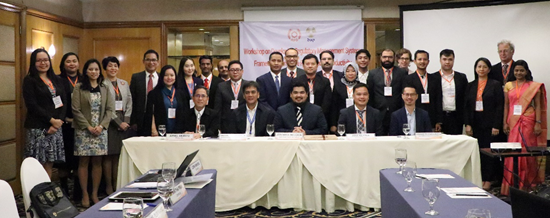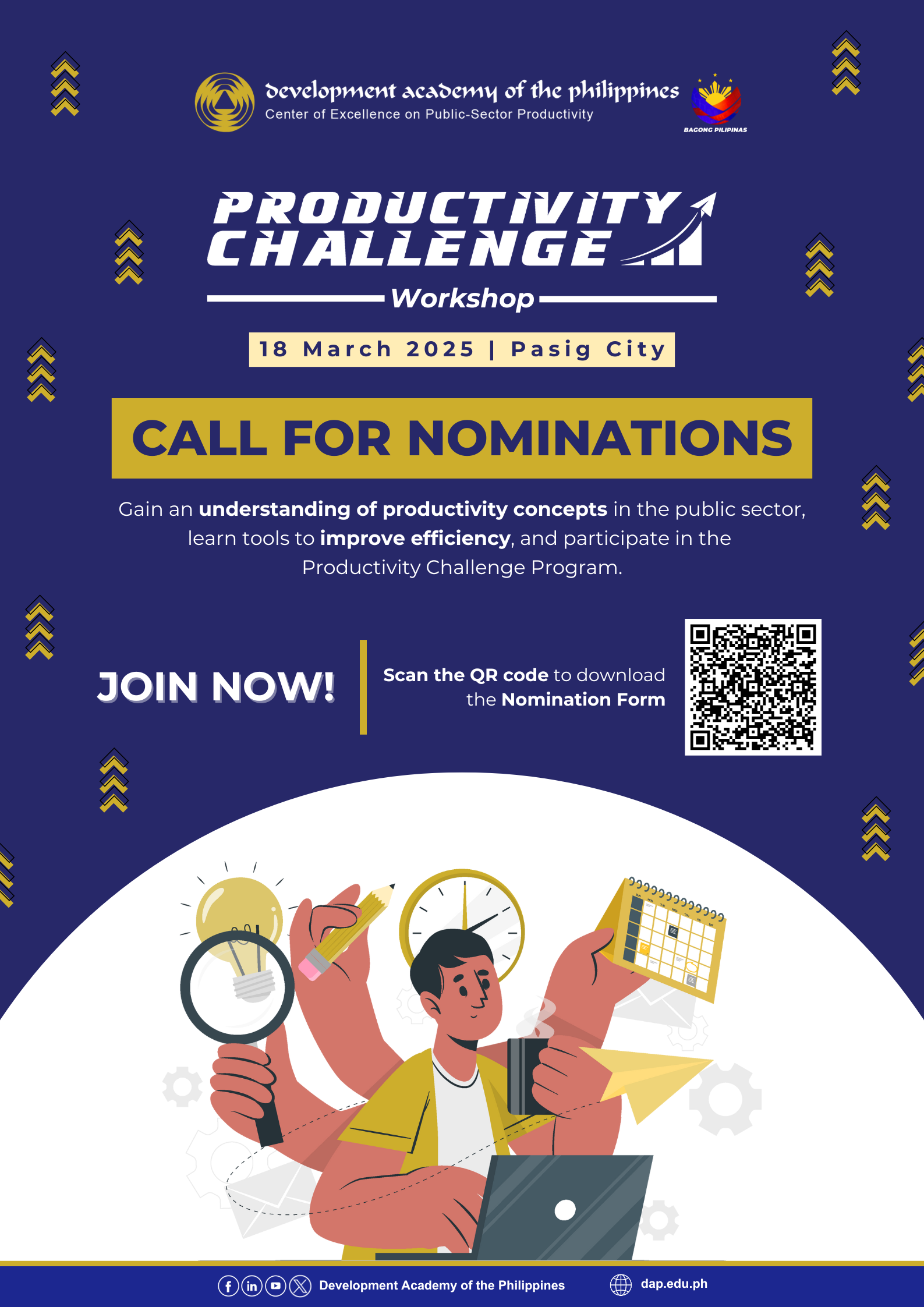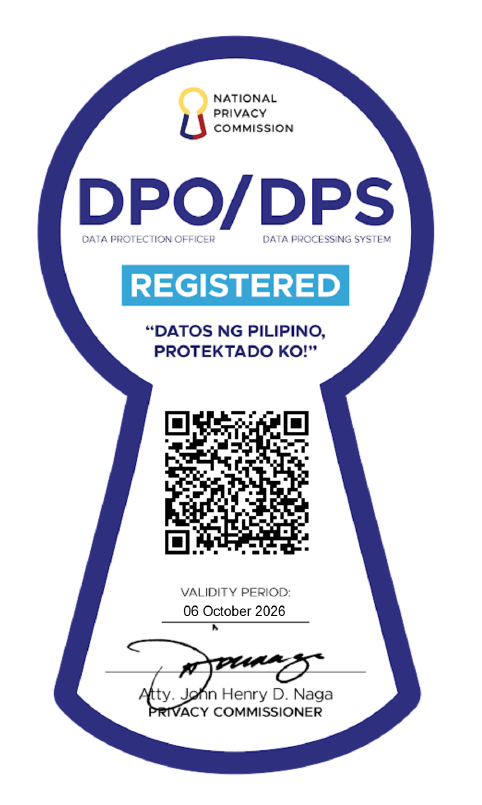
(Seated, L-R): DAP Vice President Arnel Abanto, DAP President and CEO Engelbert Caronan, Jr., ARTA Director-General Jeremiah Belgica, APO Program Officer Jose Elvinia, and APO Liaison Officer for the Philippines Armand Tristan Suratos with the participants at the opening ceremony of the Workshop on Developing Regulatory Management System Framework to Improve Public-sector Productivity last August 5 at the Richmonde Hotel in Pasig City. (Photo by Jeannalla Burns)
The Asian Productivity Organization (APO), through the Development Academy of the Philippines’ Productivity and Development Center (DAP-PDC), recently hosted the Workshop on Developing Regulatory Management System (RMS) Framework to Improve Public-sector Productivity with 18 participants from APO member countries namely, Cambodia, Republic of China, India, Indonesia, Lao PDR, Mongolia, Pakistan, Philippines, Sri Lanka, and Vietnam at the Richmonde Hotel in Pasig City on August 5-9, 2019.
The five-day workshop aimed to contribute to member countries’ competitiveness by enhancing governance effectiveness and the future-readiness of public sectors in the region by reviewing regulatory management approaches and practices of governments, determining the gaps in regulatory administration and enforcement, developing a regulatory management system framework, and formulating common goals for action to improve the delivery of regulatory services for higher public sector productivity in member countries.
DAP President and Chief Executive Officer Engelbert Caronan, Jr., in his welcome remarks during the opening ceremony said that as the national productivity organization of the Philippines, the DAP is in full support of the Smart Public Sector Program of the APO. He also said that “We contribute to the smarter public sector initiative of the Philippine Development Plan 2017-2022 through the Modernizing Government Regulations Program,” highlighting the Academy’s capacity building activities to improve the regulation making process and effectively manage the delivery of regulatory services of government agencies.
Caronan also shared the ‘Regulatory Management System,’ developed by the DAP, that aims to provide an institutional-level template for government agencies to ensure continuous improvement in regulatory processes.
Anti-Red Tape Authority (ARTA) Director-General Jeremiah Belgica, who served as the keynote speaker, underscored that the need for an efficient and effective RMS cannot be overemphasized as it directly affects the achievement of economic, social, political, and environmental outcomes of a country. He also said that the Philippines is still on the ‘starter’ stage and still has a long way to go in terms of embedding a working RMS.
Belgica sought the support of agencies through their strict compliance with Republic Act 11032 or the “Ease of Doing Business” and those in the private sector by reporting any inefficiencies and noncompliance that they might observe. He also said that if their RMS is designed and implemented correctly, this initiative will not only improve the public’s perception of the Philippine government but will also eliminate opportunities for corruption. Thus, promoting transparency and educating the public about their rights to efficient government service delivery.
Meanwhile, APO Program Officer Dr. Jose Elvinia stressed that the development and implementation of broad regulatory policies are essential to achieve key objectives such as boosting economic development and consumer welfare by encouraging market entry, market openness, innovation, and competition, among other important factors for any country to progress.
“We hope that this workshop will be able to contribute to and help you implement successful good regulatory practices with renewed understanding and realization of the significance of processes, systems, tools, and methods for improving the quality of regulation with the set of institutions that have responsibility for ensuring that the provisions, laws, rules, norms and decision making are well in place,” he added emphasizing that effective and efficient regulations are needed to support growth, investment, innovation, and the functioning of markets and the society as a whole.
The participants visited two government organizations to learn about best practices in regulatory management. The City Government of Parañaque’s Business Permit and Licensing Office presented its Project Express Lane Operation that resulted in a simplified and integrated business permit renewal system to improve service delivery and enhance investor confidence. Likewise, Bangko Sentral ng Pilipinas presented its role in the Philippine economy and its risk-based approaches to ensure financial stability and regulatory approaches that ensure financial innovation and consumer protection.
At the end of the workshop, an initial RMS framework was developed, based on good regulatory practices presented by the resource persons and inputs from the participants’ country presentations. This framework, upon further refinement, will be used by the APO in designing programs that will support the strengthening of RMS of member countries in the region.
The Tourism Promotions Board supported the workshop by providing tokens for the participants. – Jeannalla Burns




